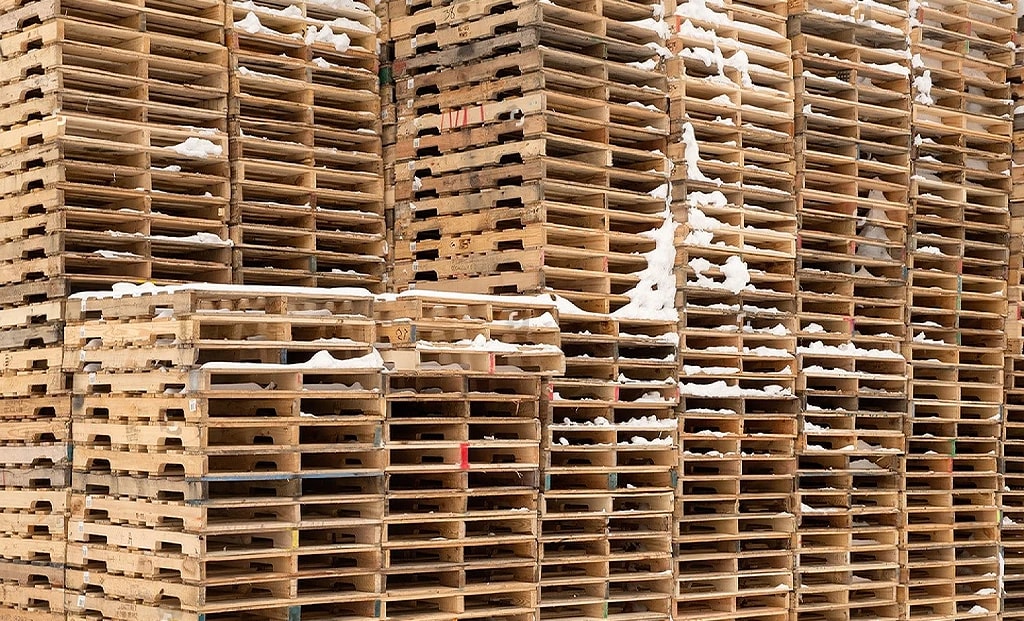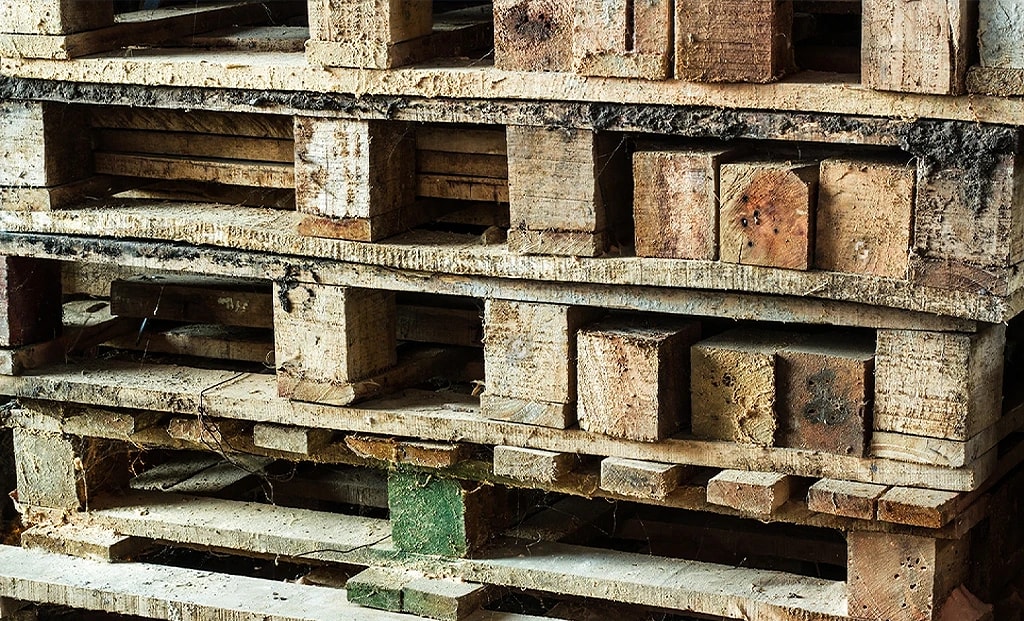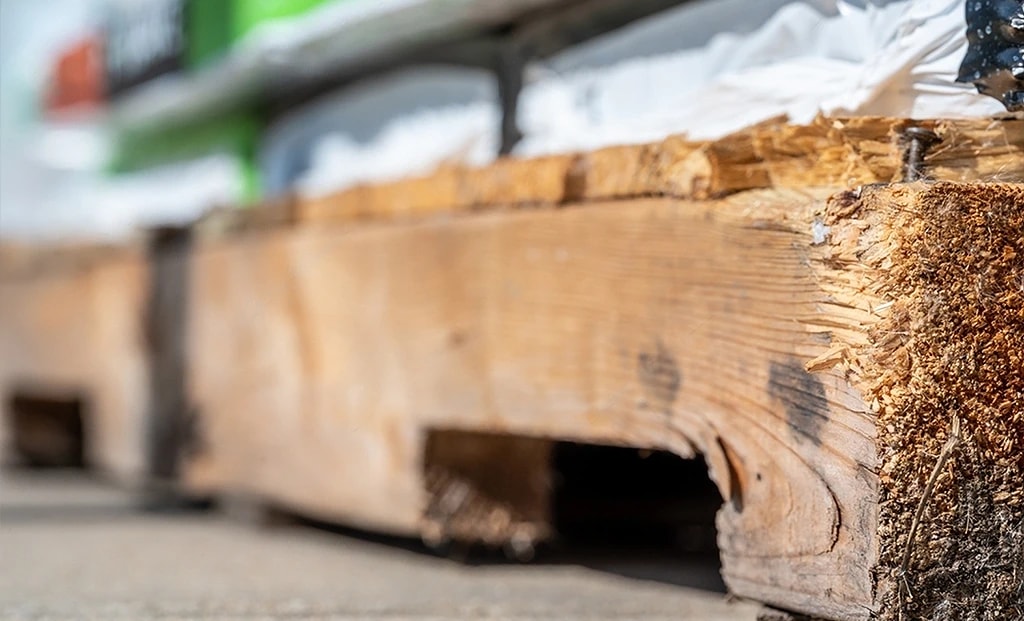Storing pallets outdoors during the winter is feasible; however, prolonged exposure to winter conditions can adversely affect the durability and structural integrity of wooden pallets.
While pallets made from hardwoods, such as oak, generally exhibit greater resilience than softwood pallets and are more likely to withstand outdoor storage, those treated or coated with protective finishes may offer enhanced resistance to moisture, decay, and other environmental factors.
Nevertheless, extended outdoor storage in cold weather can lead to issues such as warping or decay due to moisture, wood cracking or splitting from repeated freezing and thawing, as well as discoloration and degradation from UV exposure. Additionally, pallet stacks may freeze together, posing challenges for separation without causing damage to the wood.
To address these concerns, it is advisable to implement preventive measures, including raising pallets to prevent water accumulation, covering them with tarps or plastic wraps to shield against moisture, and storing them in dry areas whenever possible. Regular winter inspections are also crucial for promptly identifying and addressing any signs of damage.
For those with limited time or resources, Lumbera® offers convenient routine inspection services to promptly identify and address any damage. Reach out to us for hassle-free winter inspection services.
Ideally, long-term pallet storage during winter should be indoors or in a covered space to shield them from harsh weather conditions and prevent future headaches and expenses. With several weeks of winter still ahead, don’t leave your pallets to endure it alone. Lumbera® is here to assist you! Let’s start safeguarding your pallets today for a worry-free tomorrow.



